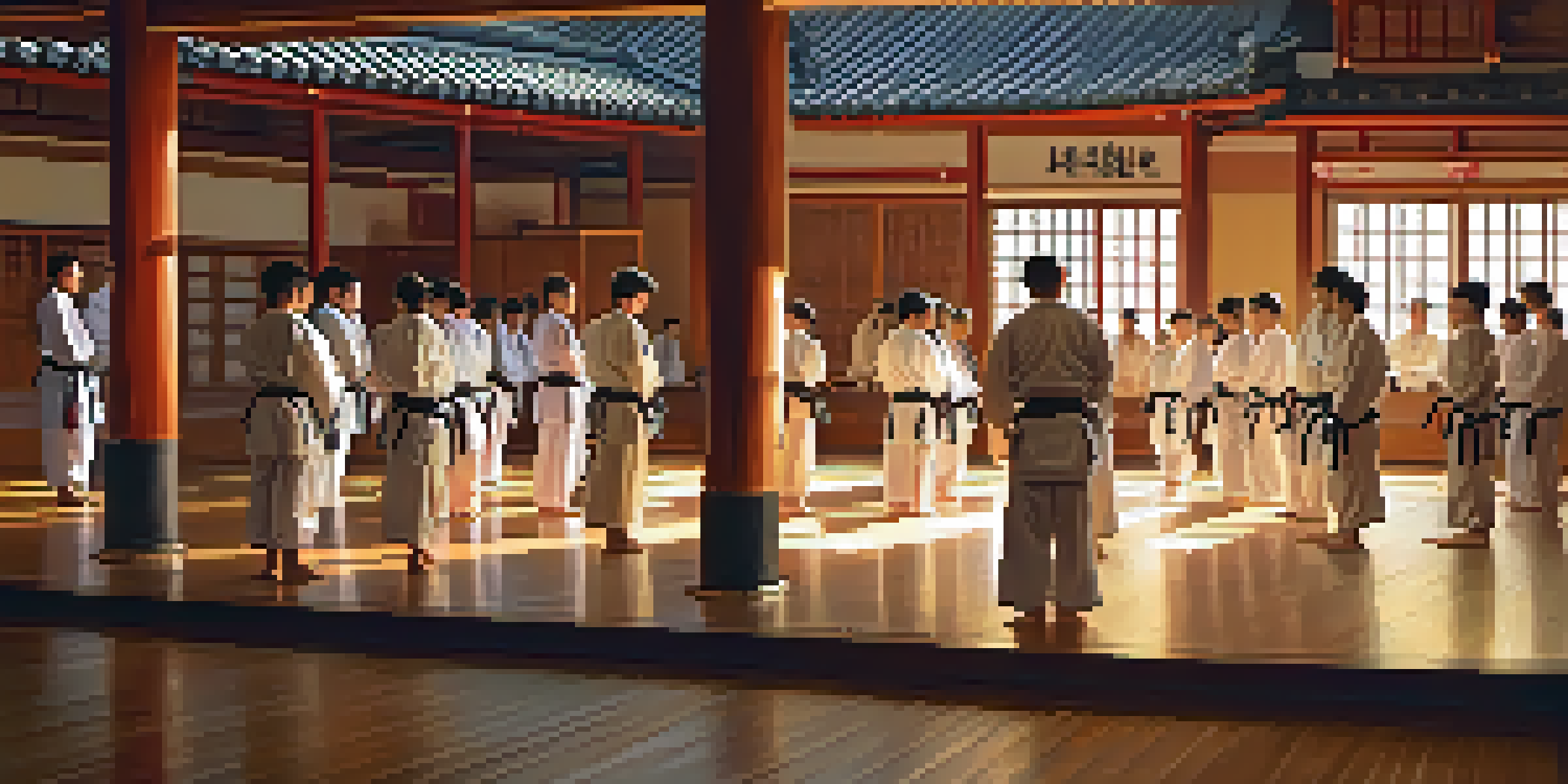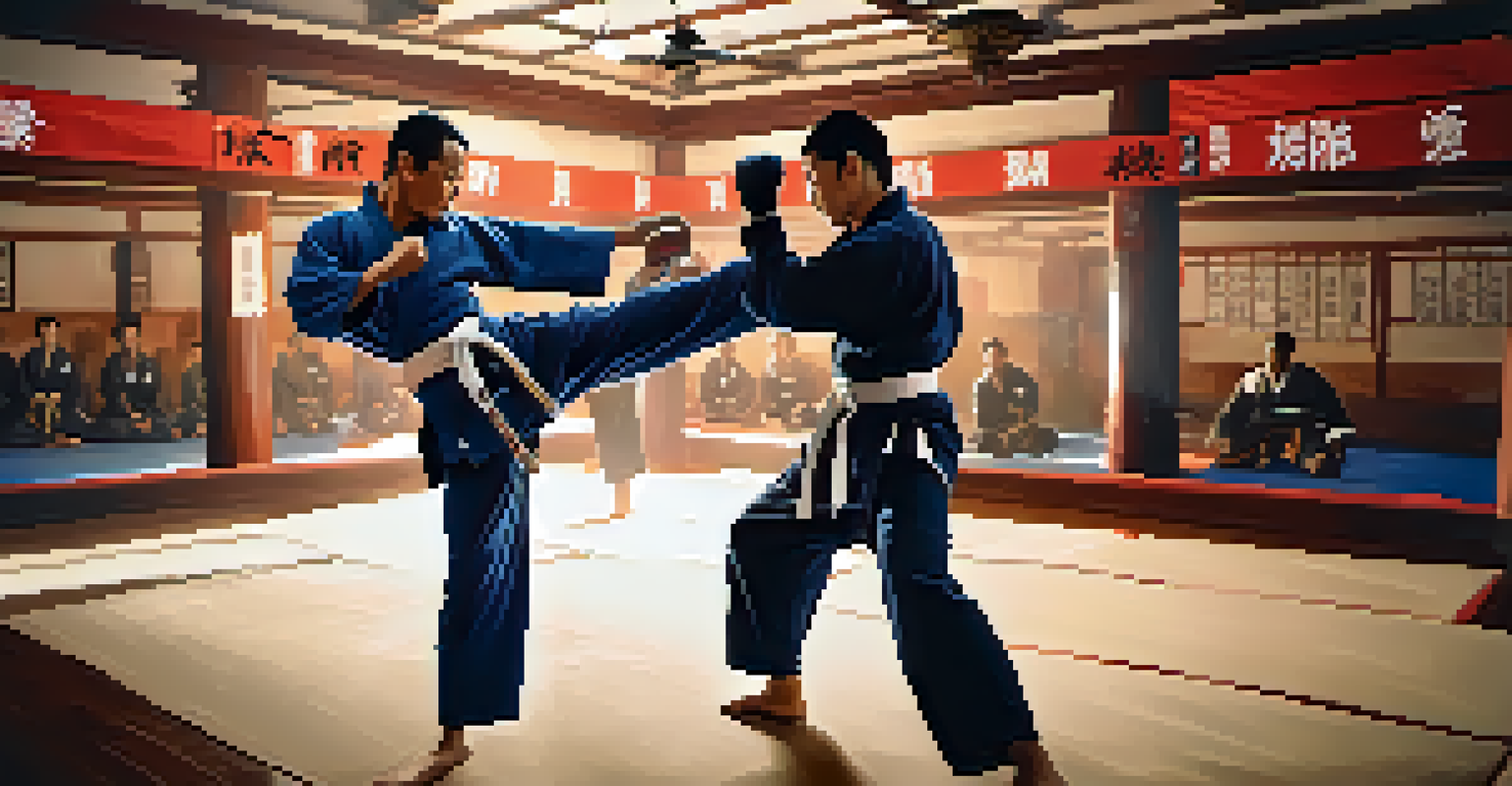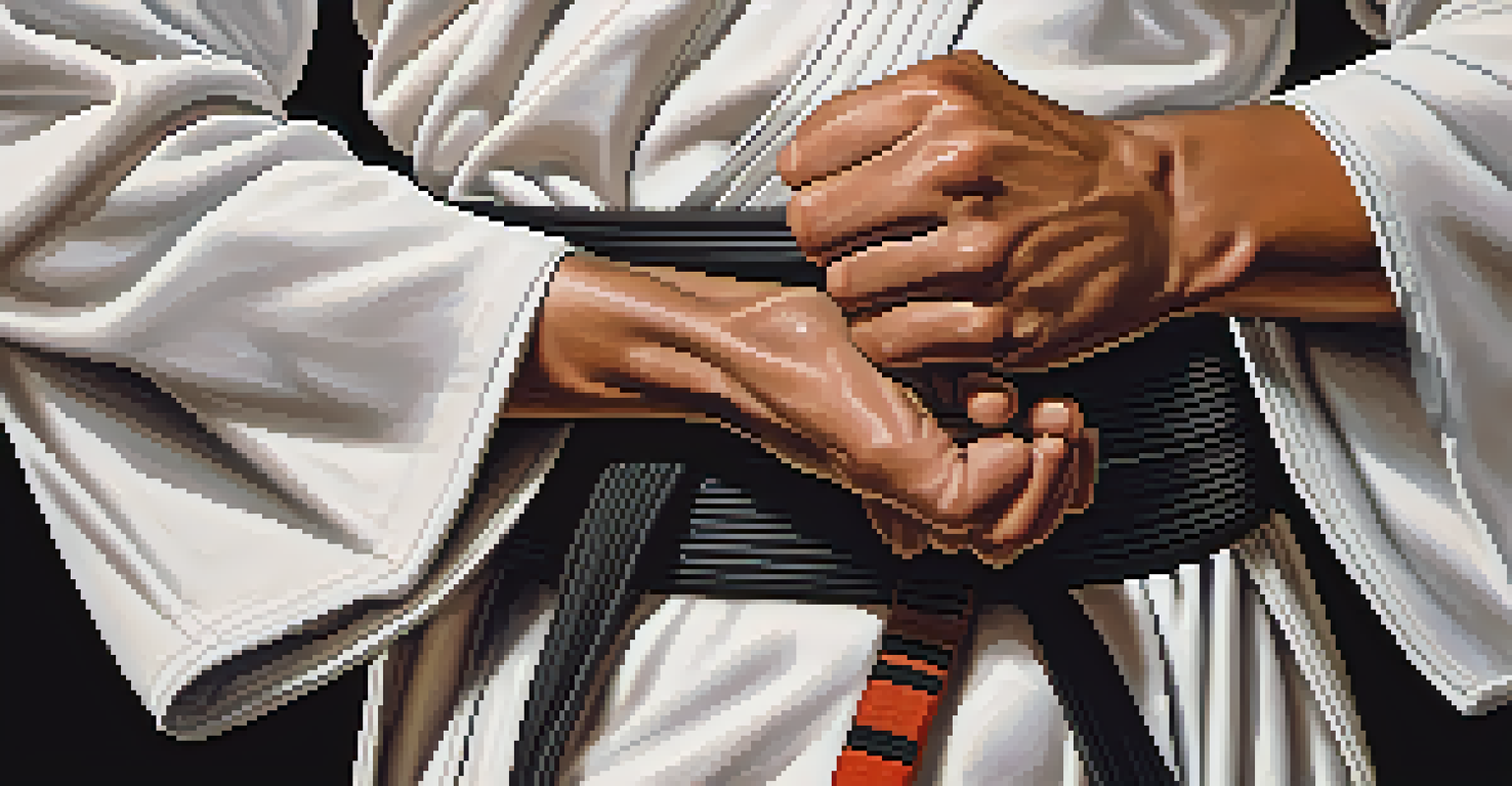The Importance of Respect in Martial Arts and Emotional IQ

Understanding Respect in Martial Arts Training
Respect is a cornerstone in martial arts, acting as the foundation for all interactions. It’s not just about bowing or following etiquette; it reflects a deeper appreciation for the art and those who practice it. When students respect their instructors and peers, they create a positive environment where everyone can learn and grow.
Respect is what we owe; love, what we give.
This mutual respect fosters trust, which is essential for effective training. When students feel valued, they are more likely to engage fully and push their limits. Imagine a dojo where everyone supports each other; that energy can propel everyone to new heights in their martial arts journey.
Moreover, respect extends beyond the dojo. It teaches practitioners to carry these values into their daily lives, enhancing relationships and building community. Ultimately, learning to respect others is a skill that benefits not only the martial artist but also society as a whole.
The Connection Between Respect and Emotional Intelligence
Emotional intelligence, or EQ, involves recognizing and managing our emotions and the emotions of others. In martial arts, high emotional intelligence allows practitioners to navigate their feelings, especially during intense training or competition. This self-awareness is crucial for maintaining respect in high-pressure situations.

When martial artists can understand their emotional triggers, they can respond with composure rather than aggression. For instance, a student who feels frustrated during a sparring match can use their EQ to channel that energy positively, maintaining respect for their partner and the sport. This ability to regulate emotions contributes to a more harmonious training environment.
Respect Fuels Growth in Martial Arts
Mutual respect among students and instructors creates a positive environment that enhances learning and personal development.
Furthermore, emotional intelligence enhances empathy, allowing practitioners to better appreciate their peers' experiences. This empathetic approach nurtures respect, as students become more attuned to each other's struggles and successes. In essence, the interplay between respect and emotional intelligence enriches the martial arts experience.
Respect as a Tool for Personal Growth in Martial Arts
In martial arts, respect serves as a powerful catalyst for personal development. When students respect their instructors, they are more likely to absorb teachings and apply them effectively. This respect creates a safe space for feedback and learning, which is crucial for improvement.
Emotional intelligence is the ability to identify and manage your own emotions and the emotions of others.
Additionally, respecting one's own limitations is equally important. Acknowledging what we cannot yet do allows us to set realistic goals and work diligently towards achieving them. For instance, a student who respects their current skill level is more inclined to practice consistently, paving the way for future success.
As practitioners grow, they inspire others by modeling respect and dedication. This ripple effect encourages a culture of continuous improvement, where everyone is motivated to excel while supporting each other. Ultimately, respect in martial arts cultivates a path toward personal growth and mastery.
Building Respect Through Discipline and Commitment
Discipline is a vital aspect of martial arts that directly correlates with respect. When students commit to their training, they develop a sense of responsibility not only to themselves but also to their instructors and peers. This commitment reflects a deep respect for the art and its traditions.
Practicing discipline means showing up, putting in the effort, and pushing through challenges. For instance, a student who consistently attends classes demonstrates respect for their training and the community. This dedication inspires others to follow suit, creating a culture of respect and discipline within the dojo.
Emotional Intelligence Enhances Training
High emotional intelligence allows martial artists to manage emotions effectively, fostering respect and collaboration during training.
Moreover, the journey of mastering martial arts requires patience and perseverance, reinforcing the importance of respect. As students overcome obstacles together, they build bonds rooted in mutual admiration. In this way, discipline acts as a bridge, connecting respect and personal growth.
Emotional Intelligence: Enhancing Communication in Martial Arts
Effective communication is crucial in martial arts, and emotional intelligence plays a significant role in facilitating it. Practitioners with high EQ can express their thoughts and feelings clearly while also being receptive to others. This ability enhances collaboration during training, allowing for constructive feedback and better understanding.
For example, when a student provides feedback to a partner, doing so with empathy and respect fosters a supportive learning environment. Rather than feeling criticized, the partner feels valued and encouraged to improve. This dynamic reinforces respect among peers, as everyone feels heard and understood.
Furthermore, emotional intelligence helps in conflict resolution, a common occurrence in training. When misunderstandings arise, practitioners with strong EQ can navigate these situations with grace, ensuring that respect remains at the forefront. This approach not only resolves conflicts but also strengthens relationships within the martial arts community.
Respect in Competition: A True Test of Character
Competition in martial arts can be intense, but it also serves as a critical test of respect and emotional intelligence. Athletes must respect their opponents, acknowledging their skills and efforts while striving to perform their best. This mindset transforms competition into a shared experience rather than a mere battle.
In high-stakes scenarios, emotional intelligence becomes essential for managing stress and maintaining composure. A competitor who respects their opponent is less likely to resort to unsportsmanlike behavior, which can tarnish the spirit of the sport. Instead, they embody the values of martial arts, showcasing integrity and honor.
Respect Transcends the Dojo
The principles of respect and emotional intelligence learned in martial arts positively impact practitioners' daily lives and relationships.
Ultimately, the way martial artists conduct themselves during competition reflects their training and commitment to respect. Those who demonstrate respect on the mat often inspire others and elevate the entire community. In this way, competition becomes not just a test of skill, but a celebration of mutual respect.
The Lasting Impact of Respect and Emotional IQ Beyond the Dojo
The values of respect and emotional intelligence learned in martial arts extend far beyond the dojo. Practitioners often find that these principles enhance their interactions in everyday life, from personal relationships to professional settings. The ability to respect others and manage emotions effectively is invaluable in all aspects of life.
For instance, a martial artist who has honed their emotional intelligence may navigate workplace challenges with greater ease, fostering a collaborative environment. Similarly, the respect they cultivate in training can lead to deeper, more meaningful connections outside of martial arts. This transformation showcases the profound influence of these values.

Ultimately, the journey through martial arts equips individuals with tools to build a more respectful and emotionally intelligent world. By carrying these lessons into their lives, practitioners contribute positively to their communities, proving that the impact of martial arts reaches far beyond punches and kicks.